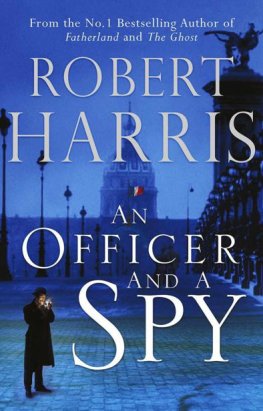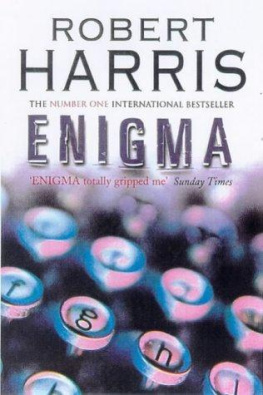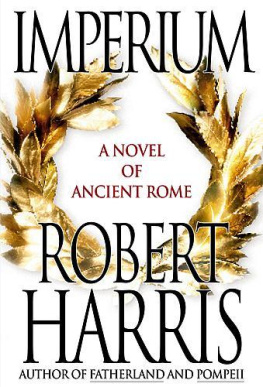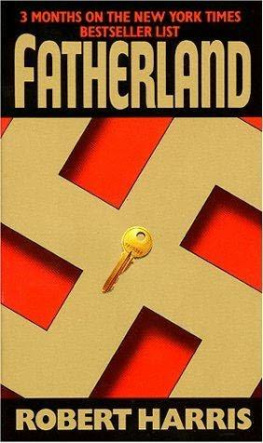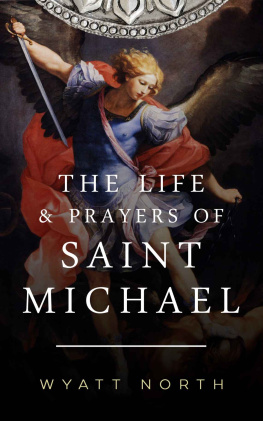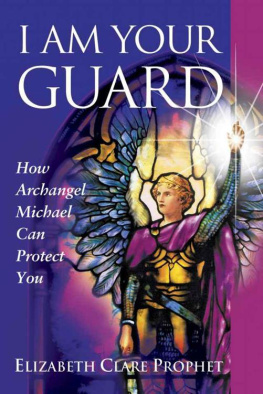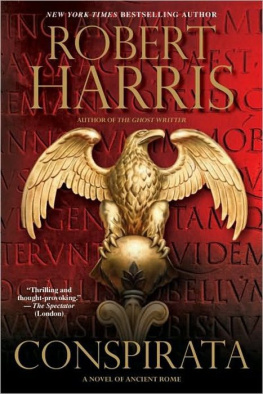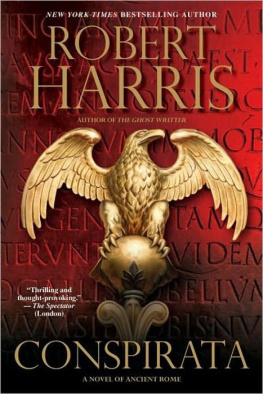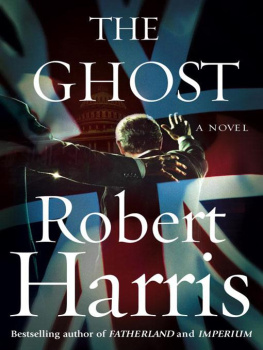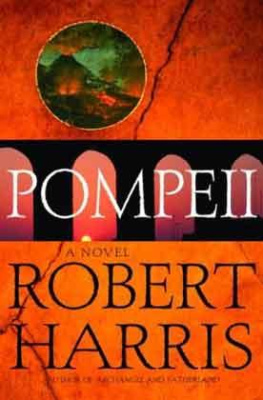Robert Harris - Archangel
Here you can read online Robert Harris - Archangel full text of the book (entire story) in english for free. Download pdf and epub, get meaning, cover and reviews about this ebook. year: 2009, publisher: Arrow, genre: History. Description of the work, (preface) as well as reviews are available. Best literature library LitArk.com created for fans of good reading and offers a wide selection of genres:
Romance novel
Science fiction
Adventure
Detective
Science
History
Home and family
Prose
Art
Politics
Computer
Non-fiction
Religion
Business
Children
Humor
Choose a favorite category and find really read worthwhile books. Enjoy immersion in the world of imagination, feel the emotions of the characters or learn something new for yourself, make an fascinating discovery.

- Book:Archangel
- Author:
- Publisher:Arrow
- Genre:
- Year:2009
- ISBN:9780099282419
- Rating:4 / 5
- Favourites:Add to favourites
- Your mark:
- 80
- 1
- 2
- 3
- 4
- 5
Archangel: summary, description and annotation
We offer to read an annotation, description, summary or preface (depends on what the author of the book "Archangel" wrote himself). If you haven't found the necessary information about the book — write in the comments, we will try to find it.
Archangel — read online for free the complete book (whole text) full work
Below is the text of the book, divided by pages. System saving the place of the last page read, allows you to conveniently read the book "Archangel" online for free, without having to search again every time where you left off. Put a bookmark, and you can go to the page where you finished reading at any time.
Font size:
Interval:
Bookmark:
Archangel by Robert Harris.
Prologue
Rapava's story
'Death solves all problems - no man, no problem.'
J.V Stalin, 1918
LATE ONE NIGHT a long time ago - before you were even born, boy - a bodyguard stood on the veranda at the back of a big house in Moscow, smoking a cigarette. It was a cold night, without stars or moon, and he smoked for the warmth of it as much as anything else, his big, farm lad's hands cupped around the burning cardboard tube of a Georgian papirosa.
This bodyguard's name was Papu Rapava. He was twenty-five years old, a Mingrelian, from the north-eastern shoreland of the Black Sea. And as for the house - well, fortress would have been a better word. It was a tsarist mansion, half a block long, in the diplomatic sector, not far from the river. Somewhere in the frosty darkness at the bottom of the walled garden was a cherry orchard, and beyond it a wide street - Sadovaya-Kudrinskaya - and beyond that the grounds of the Moscow Zoo. There was no traffic. Very faintly in the distance, when it was quiet, like now, and the wind was in the right direction, you could hear the howling of caged wolves.
By this time the girl had stopped screaming, which was a mercy, for it had got on Rapava's nerves. She couldn't have been more than fifteen, not much older than his own kid sister, and when he had picked her up and delivered her, she had looked at him - looked at him - well, to be honest, boy, he preferred not to talk of it, even now, nearly fifty years later.
Anyway, the girl had finally shut up and he was enjoying his cigarette when the telephone rang. This must have been about two a.m. He would never forget it. Two o'clock in the morning on the second of March, 1953. In the cold stillness of the night the bell sounded as loud as a fire alarm. Now, normally - you have to understand this - there were four guards on duty during an evening shift: two in the house and two in the street. But when there was a girl, the Boss liked his security kept to a minimum, at least indoors, so on this particular night Rapava was alone. He threw down his cigarette, sprinted through the guard room, past the kitchen and into the hall. The phone was old-fashioned, pre-war, fastened to the wall - Holy Mother, it was making a racket! - and he grabbed the receiver mid-ring. A man said: 'Lavrenty?'
'He's not here, comrade.'
'Get him. It's Malenkov.' The normally ponderous voice was hoarse with panic.
'Comrade -'Get him. Tell him something's happened. Something's happened at Blizhny.'
'KNow what I mean by Blizhny, boy?' asked the old man. There were two of them in the tiny bedroom, on the twenty-third floor of the Ukraina Hotel, slumped in a pair of cheap foam armchairs, so close their knees were almost touching. A bedside lamp threw their dim shadows on to the curtained window - one profile bony, picked bare by time, the other still fleshy, middle-aged.
'Yes,' said the middle-aged man, whose name was Fluke Kelso. 'Yes, I know what Blizhny means.' Of course I bloody know, he felt like saying, I did teach Soviet history at Oxford for ten bloody years- Blizhny is the Russian word for 'near'. 'Near', in the Kremlin of the forties and fifties, was shorthand for the 'Near Dacha and the Near Dacha was at Kuntsevo, just outside Moscow - double-perimeter fence, three hundred NKVD special troops and eight camouflaged 30-millimetre antiaircraft guns, all hidden in the birch forest to protect the dacha's solitary elderly resident. Kelso waited for the old man to carry on, but Rapava was suddenly preoccupied, trying to light a cigarette from a book of matches. He couldn't manage it. His fingers couldn't grasp the flimsy sticks. He had no fingernails.
'So what did you do?' Kelso leaned across and lit Rapava's cigarette for him, hoping to mask the question with the gesture, trying to keep the excitement out of his voice. On the little table between them, hidden among the empty bottles and the dirty glasses and the ashtray and the crumpled packs of Marlboro, was a miniature cassette recorder which Kelso had put there when he thought Rapava wasn't looking. The old man sucked hard on the cigarette and then contemplated the tip with gratitude. He tossed the matches on to the floor.
'You know about Blizhny?' he said at last, settling back in his chair. 'Then you know what I did.'
Thirty seconds after answering the telephone, young Papu Rapava was knocking on Beria's door.
POLITBURO member Lavrenty Pavlovich Beria, draped in a loose red silk kimono through which his belly sloped like a great white sack of sand, called Rapava a cunt in Mingrelian, and gave him a shove in the chest that sent him stumbling backwards into the corridor. Then he pushed past him and padded off towards the stairs, his sweaty white feet leaving prints of moisture on the parquet flooring. Through the open door, Rapava could see into the bedroom - the big wooden bed, a heavy brass lampstand in the form of a dragon, the crimson sheets, the white limbs of the girl, sprawled like a sacrifice. Her eyes were wide open, dark and vacant. She made no effort to cover herself On the bedside table was a jug of water and an array of medicine bottles. A scattering of large white pills had fallen across the pale yellow Aubusson carpet.
He couldn't remember anything else, or exactly how long he had stood there before Beria came panting back up the stairs, all fired up by his conversation with Malenkov, throwing the girl's clothes at her, shouting at her to get out, get out, ordering Rapava to bring round the car. Rapava asked who else he wanted. (He had in mind Nadaraya, the head of the bodyguard, who normally went everywhere with the Boss. And maybe Sarsikov, who at that moment was deep in a vodka stupor, snoring in the guard house at the side of the building.) At this, Beria, who had his back to Rapava and was beginning to shrug off his dressing gown, stopped for a moment, and glanced over his fleshy shoulder - thinking, thinking - you could see his little eyes flickering behind their rimless pince-nez.
'No,' he said at last. 'Just you.
The car was American - a Packard, twelve cylinders, dark green bodywork, running-board a half-metre wide - a beauty. Rapava backed it out of the garage and reversed it down Vspolnyi Street until he was directly outside the front entrance. He left the engine running to try to get the heater going, jumped out and took up the standard NKVD position beside the rear passenger door: left hand on hip, coat and jacket pulled slightly open, shoulder holster exposed, right hand on the butt of his Makarov pistol, checking the street up and down. Beso Dumbadze, another of the Mingrelian boys, came running round the corner to see what was going on, just as the Boss stepped out of the house and on to the pavement.
'What was he wearing?'
'What the hell do I know what he was wearing, boy?' said the old man, irritably.
'What the hell does it matter what he was wearing?'
Actually, now he stopped to think of it, the Boss was wearing grey - grey coat, grey suit, grey pullover, no tie - and what with this, and his pince-nez, and his sloping shoulders, and his big, domed head, he looked like nothing so much as an owl - an old, malevolent grey owl. Rapava opened the door and Beria got in the back, and Dumbadze - who was about ten yards away - made a little what the fuck do I do? Gesture with his hands, to which Rapava gave a shrug - what the fuck did he know? He ran round the car to the driver's seat, slid behind the wheel, jammed the gear stick in to first, and they were off.
He had driven the fifteen miles out to Kuntsevo a dozen times before, always at night and always as part of the General Secretary's convoy - and that was some performance, boy, I can tell you. Fifteen cars with curtained rear windows, half the Politburo - Beria, Malenkov, Molotov, Bulganin, Khrushchev - plus bodyguards: out of the Kremlin, through the Borovitskiy Gate, down the ramp, accelerating to 75 miles an hour, the militia holding back the traffic at every intersection, two thousand plainclothes NKVD men lining the government route. And you never knew which car the GenSec was in until, at the last minute, just as they turned off the highway into the woods, one of the big ZiLs would pull out and accelerate to the front of the cortege, and the rest of them would all slow down to let the Rightful Heir of Lenin go in first.
Next pageFont size:
Interval:
Bookmark:
Similar books «Archangel»
Look at similar books to Archangel. We have selected literature similar in name and meaning in the hope of providing readers with more options to find new, interesting, not yet read works.
Discussion, reviews of the book Archangel and just readers' own opinions. Leave your comments, write what you think about the work, its meaning or the main characters. Specify what exactly you liked and what you didn't like, and why you think so.

